Concrete in the loft interior
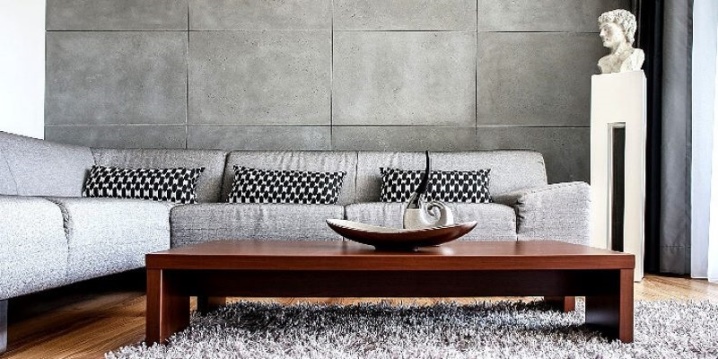
In recent years, the use of concrete has been very popular in loft-style interior decoration. It is a trendy material used for walls, ceilings, countertops and other items. The use of different shading solutions and special additives make the scope of its application truly endless. We will talk about the pros and cons of concrete surfaces when decorating interiors in an industrial style in our review.
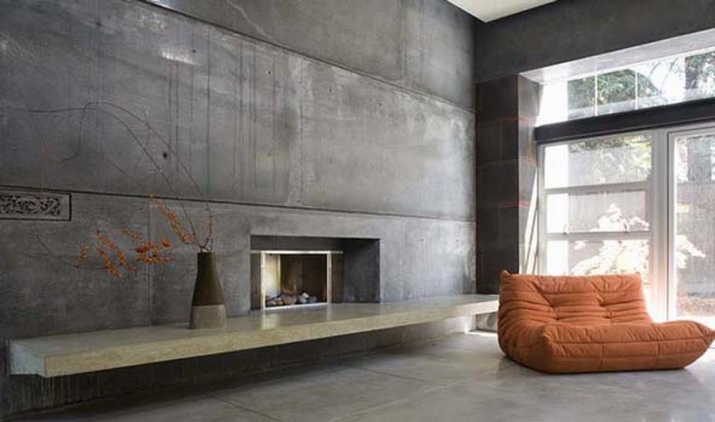
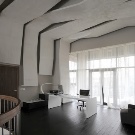
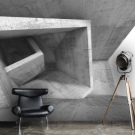
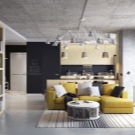
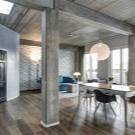
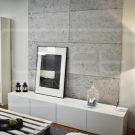
Advantages and disadvantages
Industrial architecture is favorably emphasized by the minimalist texture of concrete. This decor is a striking element in the living room, creating a harmonious TV backdrop and authentic wall decorations in the living room. Concrete looks very impressive in the kitchen space, replacing the tiles that are boring to everyone. With the help of this moisture-resistant composition, you can arrange a stylish apron - it will look harmoniously with the artificial stone countertop. Glossy plumbing stands out very favorably against the background of concrete coatings. And such properties of concrete as moisture resistance and heat resistance make it a good solution for finishing bathrooms, showers and bathrooms.
Important! Concrete looks harmoniously with all major industrial-style markers such as brickwork, metal pipes, pendant lamps and other utilities typical of this trend.
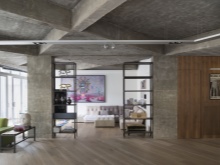
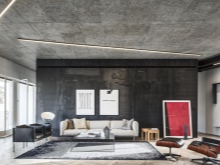
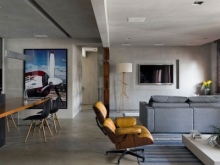
When applying concrete in the loft style, it is not at all necessary to achieve the ideal smoothness of the coating, so even people with minimal experience in construction and decoration can cope with the work. Concrete surfaces are distinguished by high parameters of chemical and mechanical resistance, as well as resistance to moisture, fungi and mold do not appear in concrete. The use of concrete gives the room a brutal minimalistic look.
However, the concrete pavement has disadvantages from a technical point of view. In particular, finished coatings contain chips and mineral fillers, therefore they have a granular porous texture. As an alternative, plaster that mimics the texture of concrete is often used. However, this material is toxic in its finished form, so all work must be performed with protective gloves and preferably a respirator. In addition, most of the building mixtures dry very quickly, which significantly reduces the overall time for finishing and leaves no room for correction in the event of improper application of the composition.
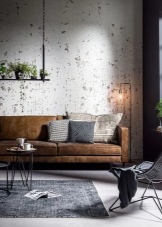
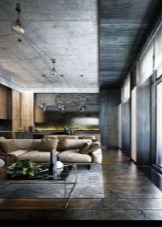
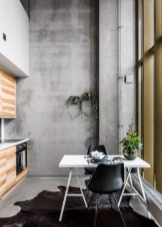
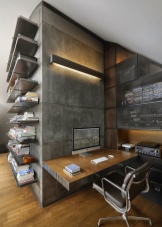
Wall finishing options
To decorate a loft-style room for concrete, materials of different types are used. Micro-concrete and Venetian plaster are most in demand.
Micro concrete is a composite coating based on cement with the addition of mineral pigments, resins and some other fillers. It is optimal for indoor and outdoor use, giving a completely seamless surface. It provides high adhesion to the vast majority of wall materials, namely:
- concrete;
- drywall;
- wood;
- metal;
- tile.
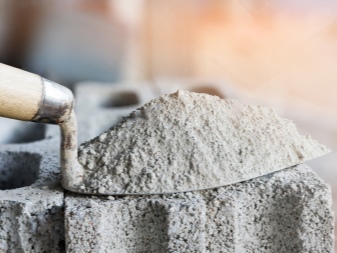
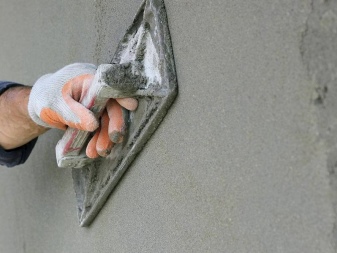
Micro concrete is characterized by wear resistance and resistance to water, shock resistance, as well as vapor and gas tightness. This material is chemically inert, it does not react with aggressive media, and has pronounced anti-slip properties. An environmentally friendly and safe material with pronounced antiseptic properties.During installation, there is practically no debris; during operation, the coating is easy to clean. The advantages also include the low weight of the structure. The composition is applied in a thin layer, so that the total load on the structure does not increase.
Microcement has similar technical and operational parameters. The only difference is the absence of polymers and mineral chips in its composition. It comes in the form of microfino and aquacement. The latter is characterized by resistance to the action of water, salts and chlorine, therefore it is optimal for cladding bathrooms, shower cabins and other rooms with high humidity.
Microfino forms a fairly fine texture, which is why it is most often used for furniture, ceilings and wall plastering.
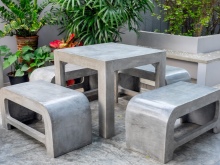
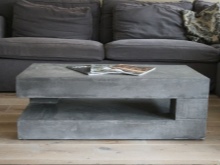
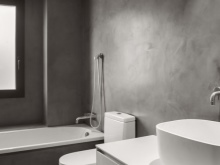
Most often, decorative plaster is used for wall cladding. It is such a flexible material that it allows you to equip decorative details of various shapes. Decorative plaster with the effect of concreting has found wide application in the design of premises for a loft. The relevance of the material is due to the fact that concrete is by no means the "lightest" material, plaster is devoid of all its decorative flaws, such a coating looks stylish, modern and fashionable.
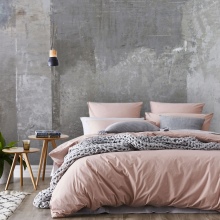
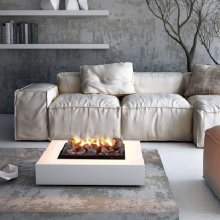
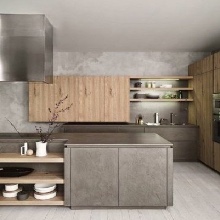
Decorative putty for concrete gives a very durable coating that practically does not require special maintenance, a similar effect is optimal for large spacious apartments and studios. Any contamination is quickly cleaned with water, a sponge and the cheapest cleaning agents. Venetian plaster is versatile, so the concrete effect can be created not only inside houses, but also outside. Over time, the material will not fade under the influence of sunlight and will retain its original shade.
In addition, concrete itself does not have an even shade and a homogeneous structure, therefore, cracks, scratches and chips will not be particularly visible on walls finished with decorative plaster.
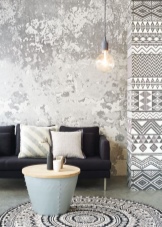
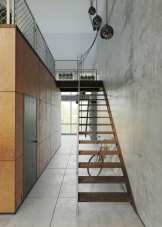
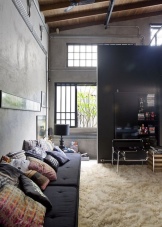
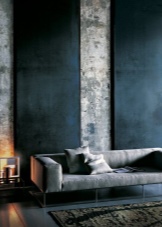
Beautiful examples
Many owners of premises planning loft-style decoration are wondering whether it is worth using architectural concrete in interior decor as an independent element. Well, try to imagine any room inside your residential building, all walls, floors and ceilings in which are made entirely of this material. Have you presented? We think the question has disappeared by itself. That is why concrete is often combined with other materials and coatings. It should be borne in mind that not all interior decor elements of modern interiors can be used together, at the same time there are those that seem to be created for each other.
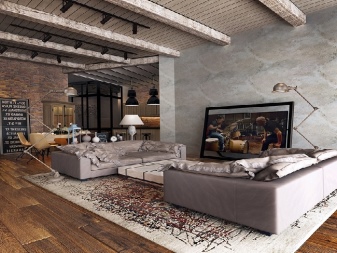
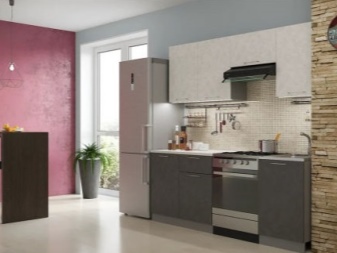
The use of any additional wood trim will help soften the cold of the concrete pavement. If you decide to combine these materials, then it is best to take panels or prefabricated natural boards - these materials harmoniously complement each other.
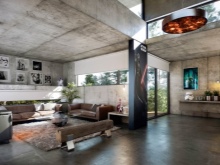
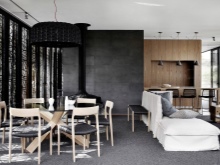
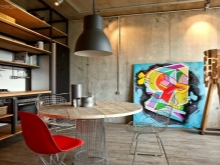
The tandem of concrete and glass in all its manifestations looks very impressive. This solution adds volume to the room and additionally visually enlarges the space. It is no coincidence that windows or mirrors from floor to ceiling are so often placed in loft interiors near a concrete wall - such an ascetic solution is optimal for supporters of a clean form.
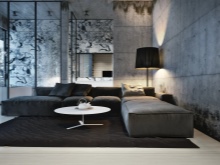
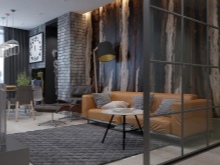
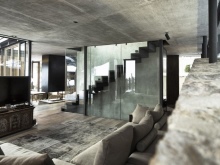
It may seem strange to many, but greenery in all its manifestations looks very harmonious with concrete. By combining plants with cold material, amazing effects can be achieved. Natural freshness makes the design complete. True lovers of industrial, most likely, will prefer fresh flowers, however, you can use artificial imitation of them.
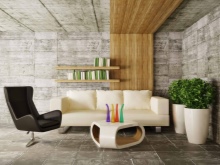
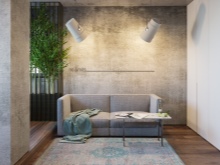
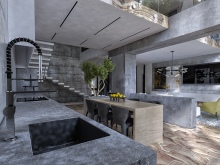
For an overview of a loft-style apartment with concrete, see the following video.













The comment was sent successfully.